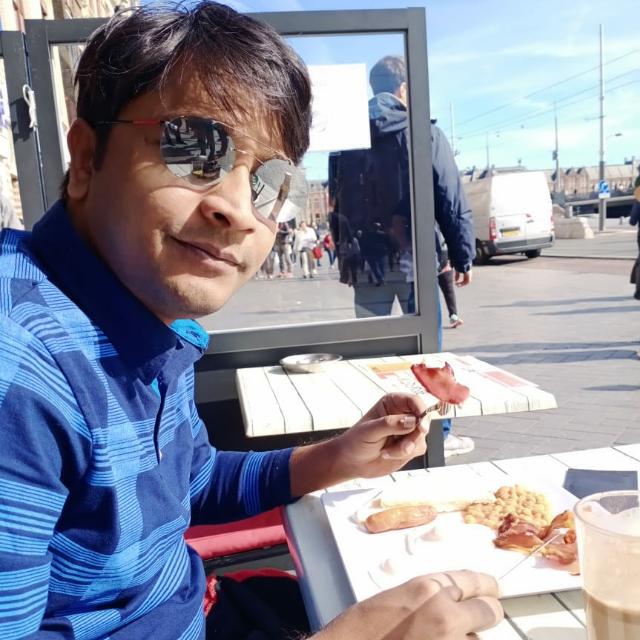½ a litre of discarded Robin Sharma draft, 3 teaspoons of Philip Kotler management lectures and a leaf taken from the tradition and orthodoxy textbook – that is the screenplay and dialogue of Miss India. This is then brewed on a painfully low flame of tea vs coffee and then stirred to infuse the “goodness” of India. The resultant serving is insipid, and the natural sweetener (Keerthy Suresh) is not enough to make it palatable.
Keerthy Suresh’s strong performance drowned in a weak script.
Keerthy Suresh portrays the character Samyuktha, or rather Manasa Samyuktha, correcting everyone around her, including her family members. Having demonstrated her acting prowess in Mahanati, she appears to relish every scene. Unfortunately, she lacks the support she deserves from the dated writing. Despite getting the character arc of a mass movie protagonist, a powerful performer like her could have delivered wonders with a better script.
The film’s single-line premise—an entrepreneur’s journey to introduce Chai into the business world of coffee-consuming Americans—holds the potential for a commercial entertainer, but much is lost in the process of adapting it into a full script. If the business rivalry and corporate games were logically developed with more screen time, it could have emerged as this generation’s Annamalai.
A missed opportunity for a potential commercial entertainer.
The film’s writing stands out as its most significant drawback, commencing with the statement, “Greatness is a quality that is neither acquired through one’s recognition nor lost because of being unacknowledged.” Regrettably, Miss India is destined to disappear into the abyss of obscurity. Many characters are burdened with lines that resemble a hybrid between motivational speeches and dialogue from the Saas-bahu regressive universe. Instead of prescribing medications, a doctor is seen imparting life lessons in good faith but marred by poor writing (“as the eldest son, you should take the family responsibilities”).
I wonder if his visiting hours are during the Brahmamahurta and he accepts payments in pranams. The brother, mother and just about every Indian supporting character above 18 breaks into archaic lines involving burden of a daughter, respect of word and my house my rules. Jagapathi Babu packs the suit, sunglasses, and evil businessman stereotype from his wardrobe before landing on sets. He is to the Telugu Movie suave tycoon what Iftikhar was to the Hindi movie inspector- recycled on demand.
A cup of clichés with a dash of uninspiring drama – that’s Miss India for you.
Miss India also risks steering business school students toward fine arts and leading budding entrepreneurs to the nearest bar. The explanation of the concept of SWOT analysis (Strength, Weakness, Opportunities, Threats) doesn’t simplify for general understanding; instead, it saturates with melodrama to the point of emotional numbing.
The film considers the key functional areas of sales and marketing as drawbacks. To sum it up, in addition to the hopeless ‘tobacco is injurious to health’ disclaimer, the movie ought to have displayed some useful disclaimers such as “professional actors perform the meeting with a venture capitalist, and individuals should not imitate it at the workplace,” “high emotions and low data points are detrimental to the growth of an entrepreneur,” or “leave dialogues in the washroom and bring the project plan to the boardroom.”
Miss India brews a disappointing blend of clichés and uninspiring storytelling.
In hindsight if an early dialogue makes charity, humanity, and charity rhyme, you know this house of tea is far from sublime. It made a tea addict like me, crave for cappucino in the middle of the night.

Captive of the 24 frames and admirer of the written word. If it is not on the silver screen or on the pages of a paperback, it might as well not exist.

